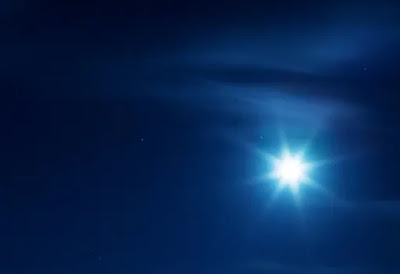As I count them, among scholars who have searched scripture, there are approximately 26 unnamed women in the Christian Scripture. Checking these same sources, there are about 80 unnamed women in Hebrew Scripture.
To many of us, that is not at
all surprising. At quick glance, it looks like there are hundreds of women who
are named, mostly in Hebrew Scripture. However, comparing the nameless women in
both scriptures, it would appear that women were more apt to be named in Hebrew
Scripture than in the time of Jesus’ birth, ministry, death and resurrection.
In the genealogy, it is clear that women were not named after the Babylonian
Captivity. That seems to have been carried over once they returned to “The
Promised Land”. When women were named, it was, at best, inconsistent.
In the weeks of Christmastide and Epiphany, when we celebrate the Incarnation and the Manifestations or Showings of the Incarnation, I want to lift up the lives of some of these women and mediate on their lives using Anglican Prayer Beads.
My particular focus will be on the Nameless women. Since so little is known about them, much of what I will write might fall under the heading of “Christian Midrash”. It’s what I like to call ‘respectful conjecture and supposition’, which places it somewhere below the lofty, scholarly approach of “Christian Midrash” but, I hope, far above “Parlor Gossip”.
I want to begin with the Sisters of Jesus. No, that’s not the name of a religious order. The sisters of Jesus are actually mentioned in two places in Scripture:
Matthew 13:55, 56: “Is not this the carpenter’s son? Is not his mother called Mary? And are not his brothers James and Joseph and Simon and Judas? And are not all his sisters with us? Where then did this man get all this?’”
And, Mark 6:3: “Is not this the carpenter, the son of Mary[a and brother of James and Joses and Judas and Simon, and are not his sisters here with us?’ And they took offence at him.”
The context of both these pieces of scripture is the return of Jesus to his home in Nazareth. When the Sabbath came, Jesus began to teach in the synagogue and “many were amazed”. But, some balked at his presumption to teach them. I mean, wasn’t he the son of Joseph, the tekton, the master craftsman? Don’t we know his brothers and sisters? Isn’t he punching above his weight?
“His sisters” are not mentioned anywhere again in scripture. Early Christian literature seems to name only two women, but there may have been more. The Gospel of Philip names them Assia and Lydia. Other writings name them Maria or Anna and Salome.
Some writers identify Salome as the daughter of Joseph from a first marriage. Which begs others question – First Marriage? Who was the first wife of Joseph? – which will never be answered, but will go on my list of questions to ask Jesus when I get to heaven.
Can we surmise that these two sisters may have been part of the “other women” who went to the grave to tend to the dead body of Jesus? Salome is named in Mark’s Gospel as “the mother of James and John” and Matthew names her as “the mothers of the sons Zebedee”.
Since “Mary, the mother of Jesus and widow of Joseph of Nazareth” is named as being in that group, is it possible that Salome, the sister of Jesus, was also there, as well as Mary (if that was her name) one of several Mary’s named in that passage? (Luke 24:10)
There is more we don’t know than we do know, but the “sisters of Jesus” provide us, at the very least, with an understanding that Jesus grew up in a close community of siblings who squabbled and fussed and teased each other as sisters and brothers often do.
The fact that he had sisters gives us a window of possibility as to why Jesus changed his mind about the request from the Canaanite woman whom he initially dismissed with a racial slur but then granted her request of healing for her daughter. (Matthew 15:21-28)
It may also provide an
insight as to why Jesus sat and engaged the Samaritan woman in conversation at
the well, which was shocking to the apostles when they returned. (John 4)
So, to the Sisters of Jesus, whether they be Assia and Lydia or Anna or Mary
and Salome, we owe a debt of gratitude. Their relationship with Jesus
undoubtedly influenced his life and his ministry.
As we remember them, let us recall the words spoken to her by the Angel Gabriel and the song their mother no doubt sang for them and taught them to sing, which certainly reached the ears and touched the heart of their brother, Jesus.
The Cross
Hail Mary, full of grace, the Lord is with thee
Blessed art thou among women and blessed is
the fruit of thy womb, Jesus.
The Invitatory
The Holy One has cast down
the mighty from their thrones,
and has lifted up the lowly.
G-d has filled the hungry
with good things,
and the rich have been sent away empty.
The Cruciform
From this day all generations will call me blessed:
the Almighty has done great things for me,
and holy is the Name of G-d.
The Weekly
My soul proclaims the
greatness of the Lord,
my spirit rejoices in G-d my Savior.
Watch it here on Facebook







